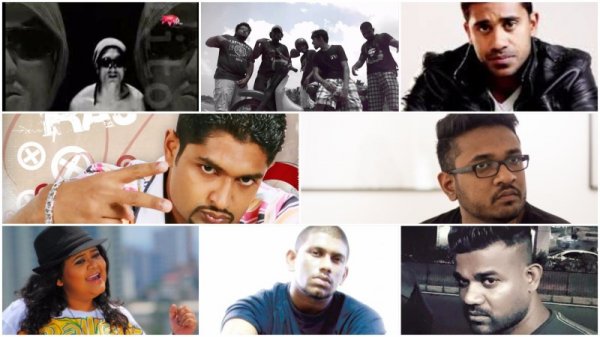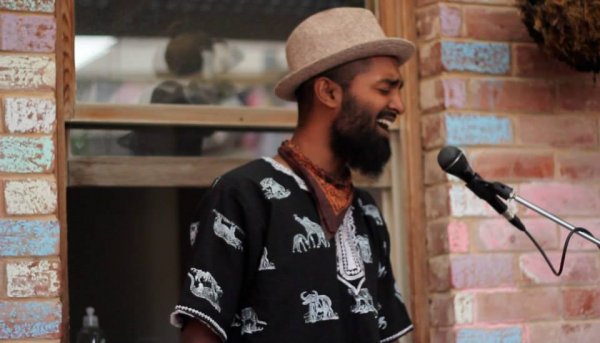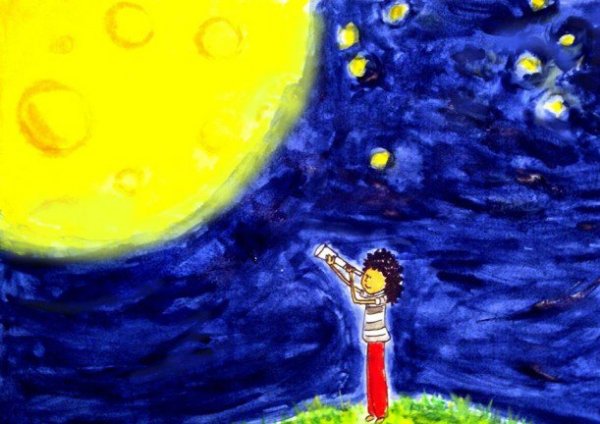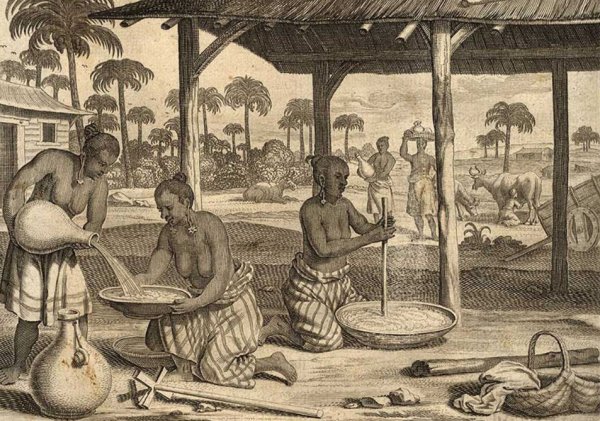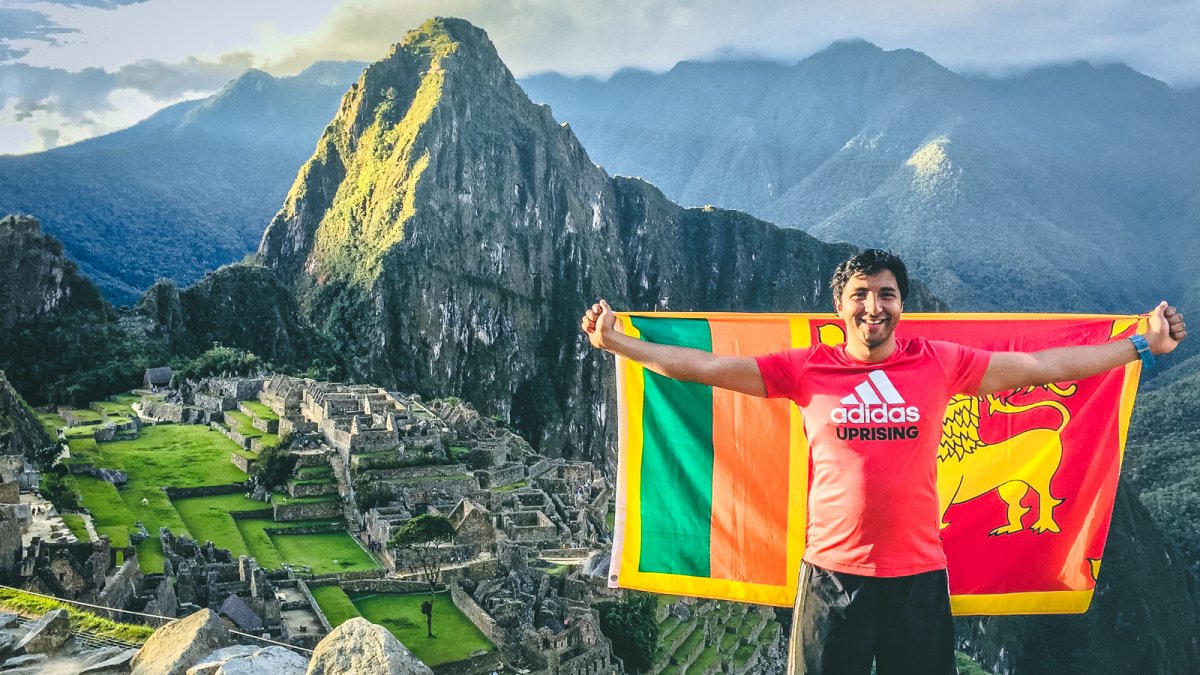
We meet Hassan Esufally on a grey and windy afternoon. There is a steady drizzle of rain, and puddles are filling the streets. It is the sort of day that is ripe for curling up indoors with a mug of hot coffee, but Hassan greets us in his running gear. “I will be heading to the Swimming Club for a workout after we talk,” he explains, as he ushers us inside. It is Thursday, so he will be doing a strengthening and conditioning workout as per his well-established training regime. “I have a training plan for the week,” he explains. “On Mondays, I do a five-kilometre run; on Tuesdays and Thursdays, I do a strengthening and conditioning workout, and on Wednesdays and Fridays, I do a long run of high intensity. On Saturdays I have a rest day, or go for something different — cycling, swimming, yoga, or even a massage.”
While most Sri Lankans are known to lead pretty sedentary lifestyles, Esufally follows an extraordinarily rigorous training schedule. However, this 27-year-old is not hitting the gym for “aesthetics”, as he laughingly puts it. He is preparing for what will probably be the biggest challenge of his life — the Antarctic Ice Marathon.
Recognised by the Guinness Book of World Records as the ‘southernmost marathon in the world’, the frigid conditions of this marathon could well be the stuff of nightmares for anyone used to the sunny climes of Sri Lanka. The Antarctic Ice Marathon is a 26.2 mile run which takes place just a few hundred miles from the South Pole. This is the average distance that most marathons are run, but this extreme endurance race has to be completed within ten hours, with every possibility of competitors having to deal with katabatic winds (or high speed, downsloping winds which can reach hurricane speeds), an altitude of about 700 metres and severely low wind chill temperatures (or what the air temperature feels like on the skin, when exposed to the wind).
“For me, there will be a temperature shift of over 50 degrees,” he laughs. “The temperatures can drop to minus 20 degrees there. There are 24 hours of sunlight, and we will have to spend two days in an igloo. I will be running on snow and ice.”
Exposure to such conditions could easily lead to frostbite, hypothermia or worse, but Esufally says he will be prepared to face the extreme cold — simply by wearing layers of warm clothing. “You don’t have to run in the cold to prepare for the cold, you just need the right gear,” he explains. “I will be wearing layers of clothing: three layers for my torso, feet, hands and head, and two layers for my legs.”
It may seem like an impossible task, but Esufally is confident he can do it. This young athlete has already completed some of the most formidable marathons in the world, and even holds the title of Ironman after taking part in the Ironman 140.6 Asia Pacific Championship in Cairns. “I have run eight marathons across six continents,” he tells us. “The last one I did was the Inca Trail Marathon, which is the most difficult marathon in the world. I was the first Sri Lankan to complete it.”
Running the Antarctic Ice Marathon is now all that stands between him and his dream of becoming the first Sri Lankan to complete a marathon on each continent. It will also make him eligible to join the prestigious 7 Continents Marathon Club.
Six Down, One To Go: Getting Into The 7 Continents Marathon Club
To become a member of this club, you have to have completed a marathon in each of the seven continents in the world — including the Antarctic Ice Marathon in the South Pole. The club is highly exclusive, and as of 2017, it has only 206 members. “I want to achieve something amazing for my country, and become the first Sri Lankan to do this,” Esufally tells us. “I have also always been into health and fitness, and I think what I do is a pretty great way of travelling around the world.”
Having always been an avid sportsman in school and university, Esufally ran his first marathon in 2014 while still in university, when he saw an advertisement calling for entries for the Melbourne Marathon. “I want to do this,” he remembers telling his friends. They had laughed. The marathon was to be held three months later; they pointed out that the chances of him being ready in time were very slim. Undeterred, and more determined than ever, Esufally began training and went on to complete the marathon three months later. “That feeling of satisfaction and achievement as I crossed the finish line was amazing,” he says.
When did he set his sights on the 7 Continents Marathon Club? He tells us that he began thinking about it after his first marathon. “I didn’t say it out loud, but I knew I always wanted to do it,” he explains. “But first, I wanted to do the Ironman challenge and see if I had the physical and mental capabilities to succeed. Plus many of these marathons, like the Inca Trail and the Antarctic, require some sort of qualification for eligibility. Anyway, once I did the Ironman, I was confident that I could do this.” He went on to set up a plan, and formally announced his goal in September 2017.
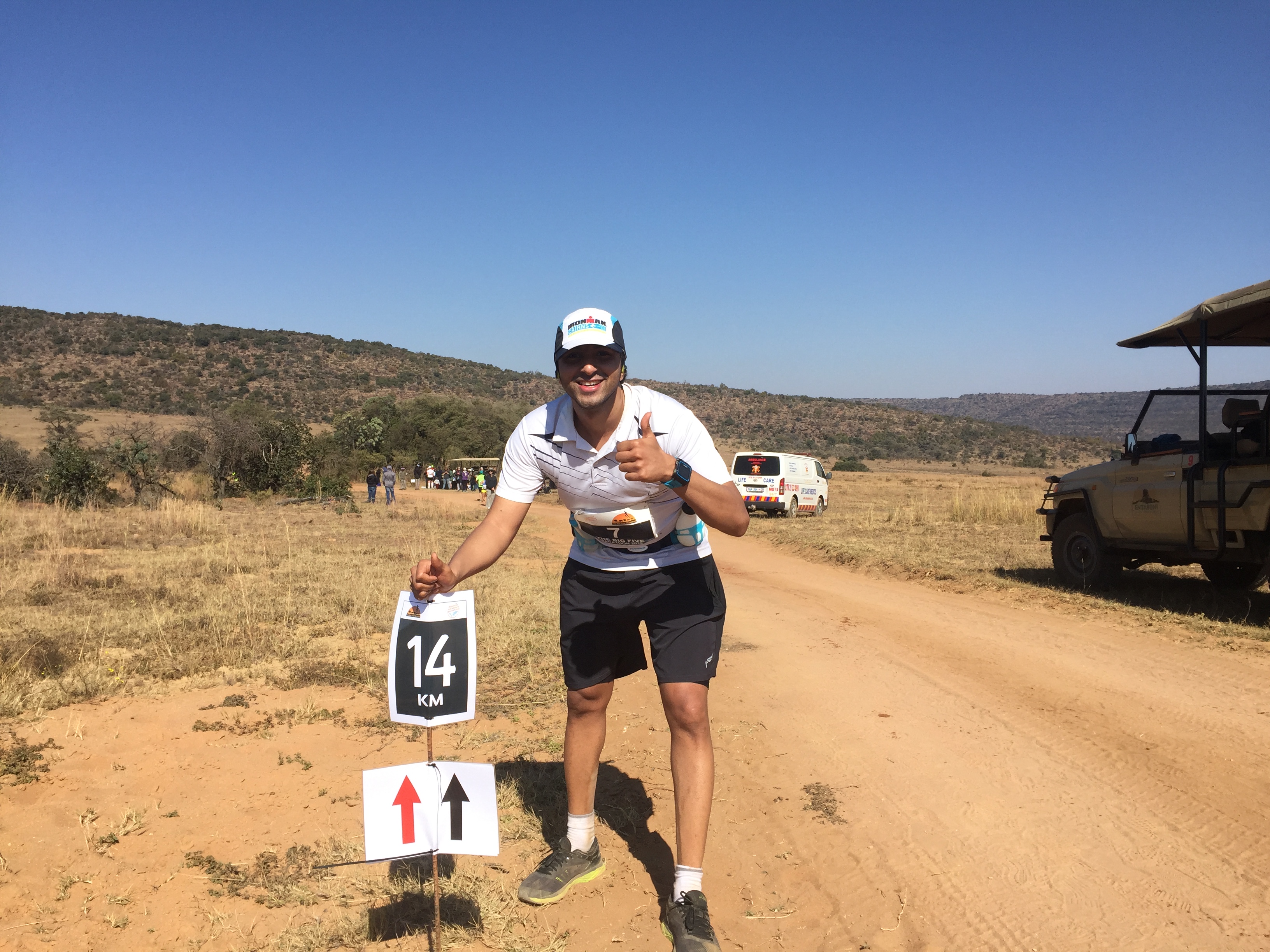
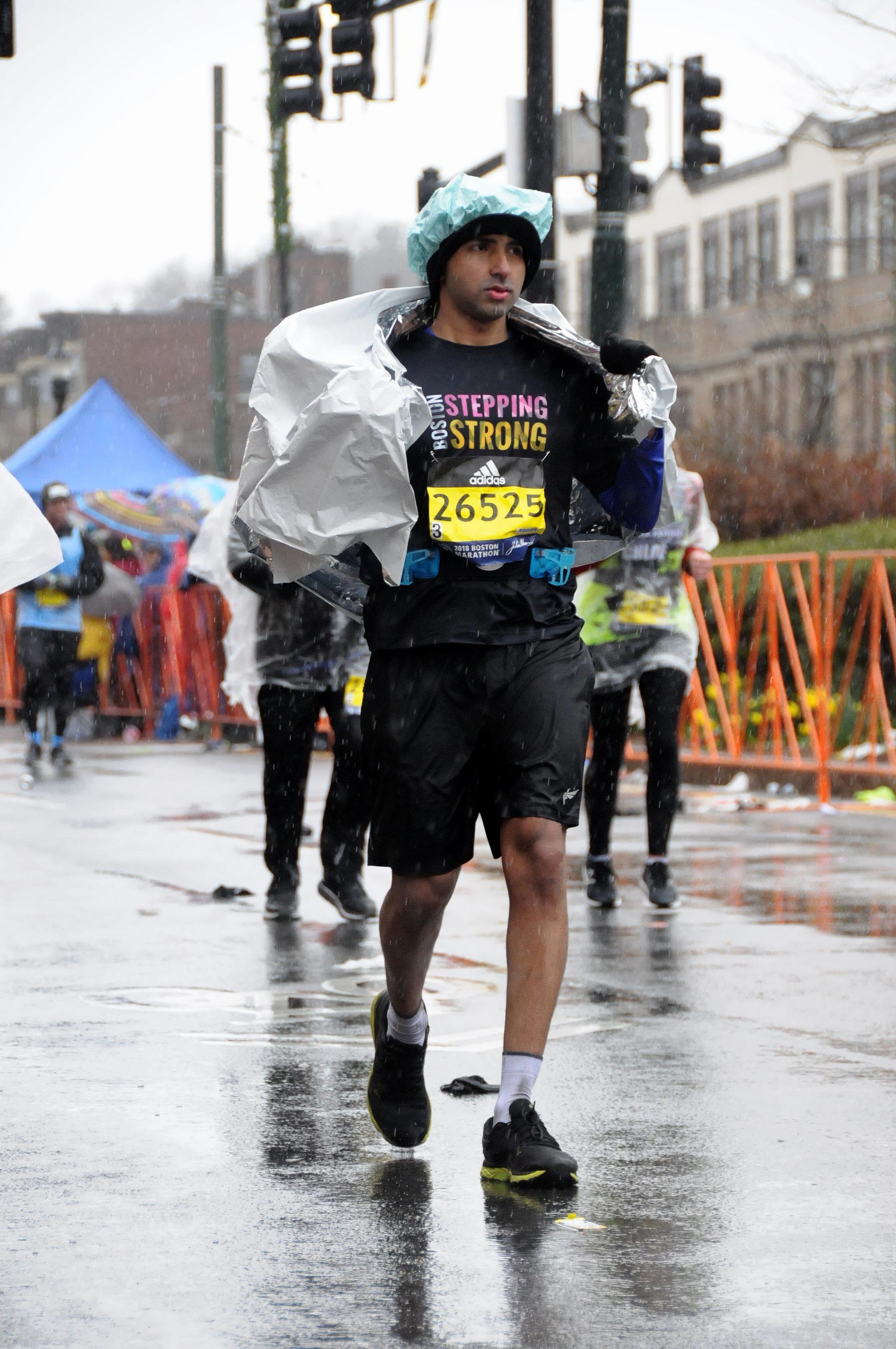
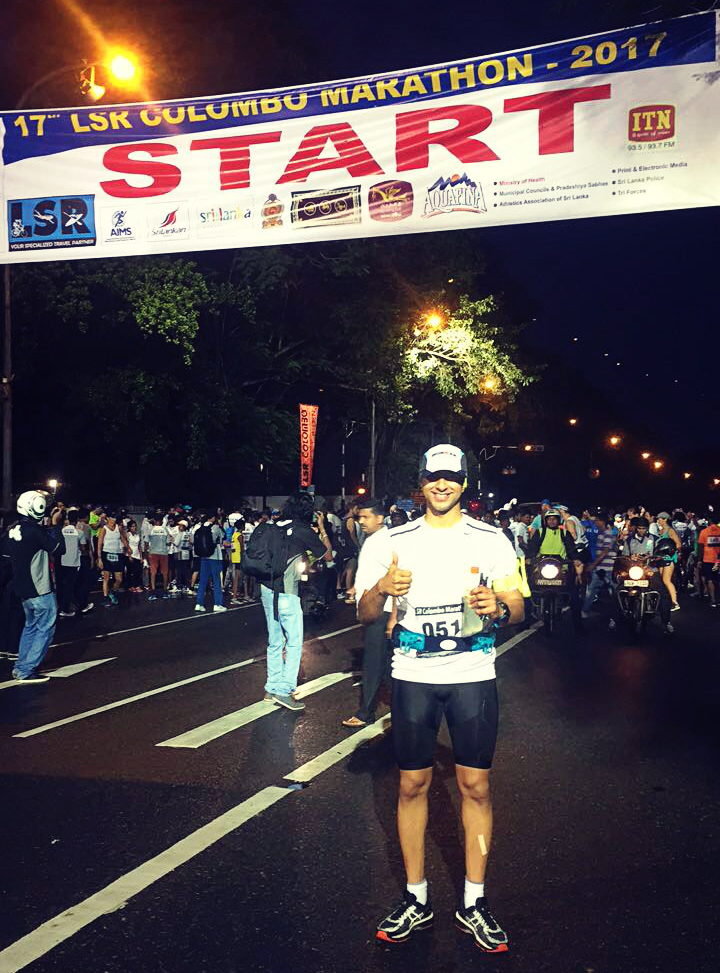
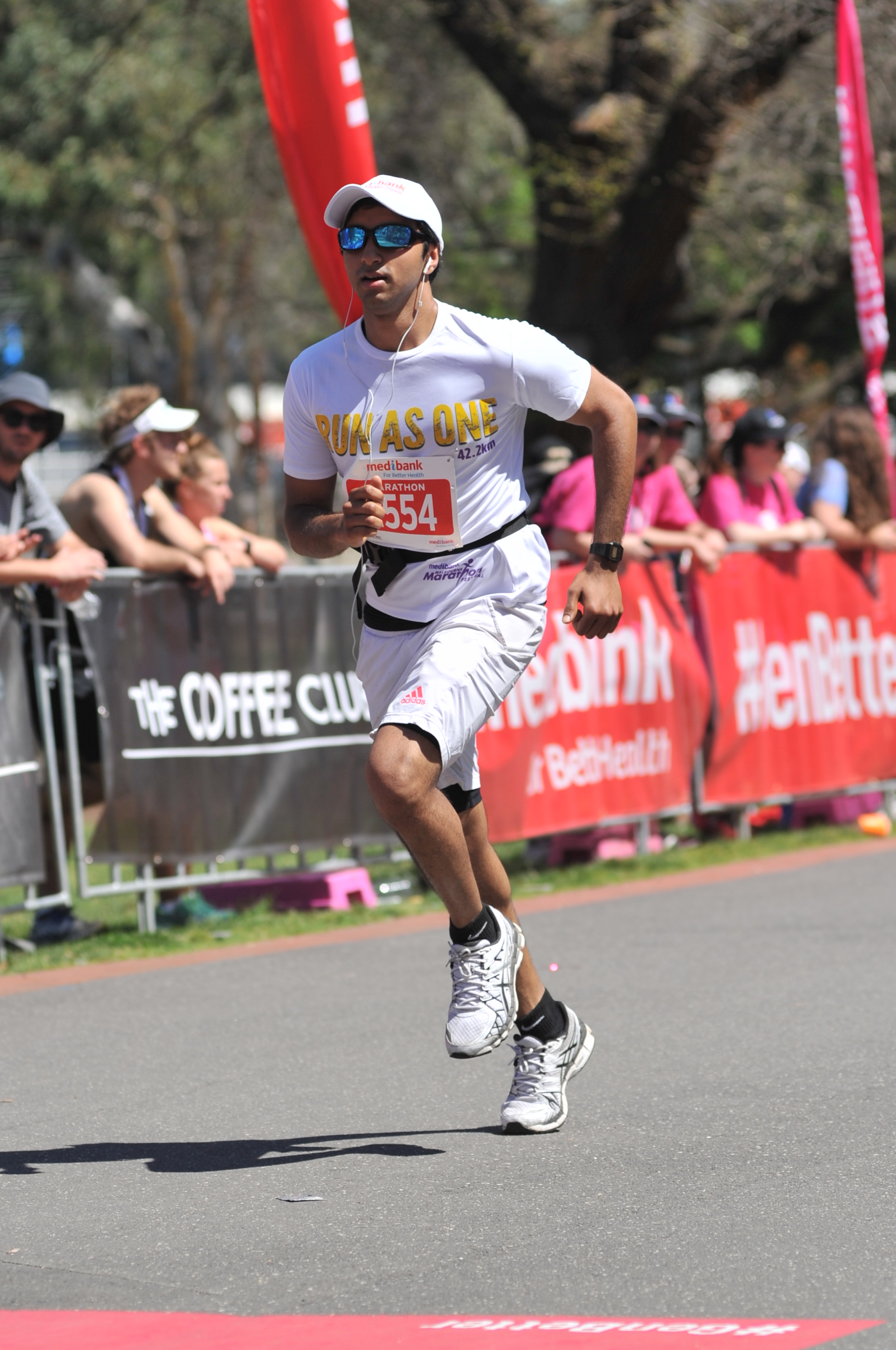
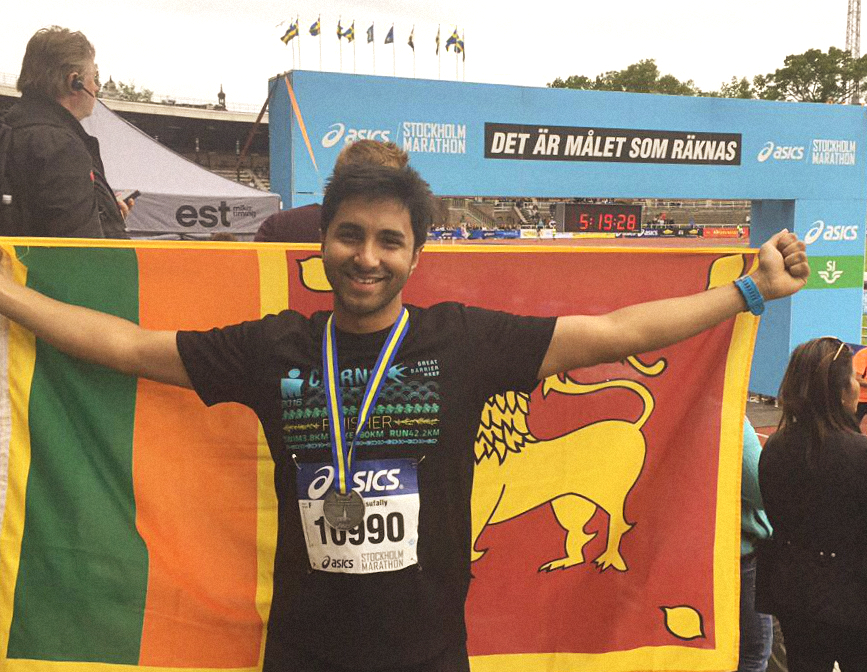
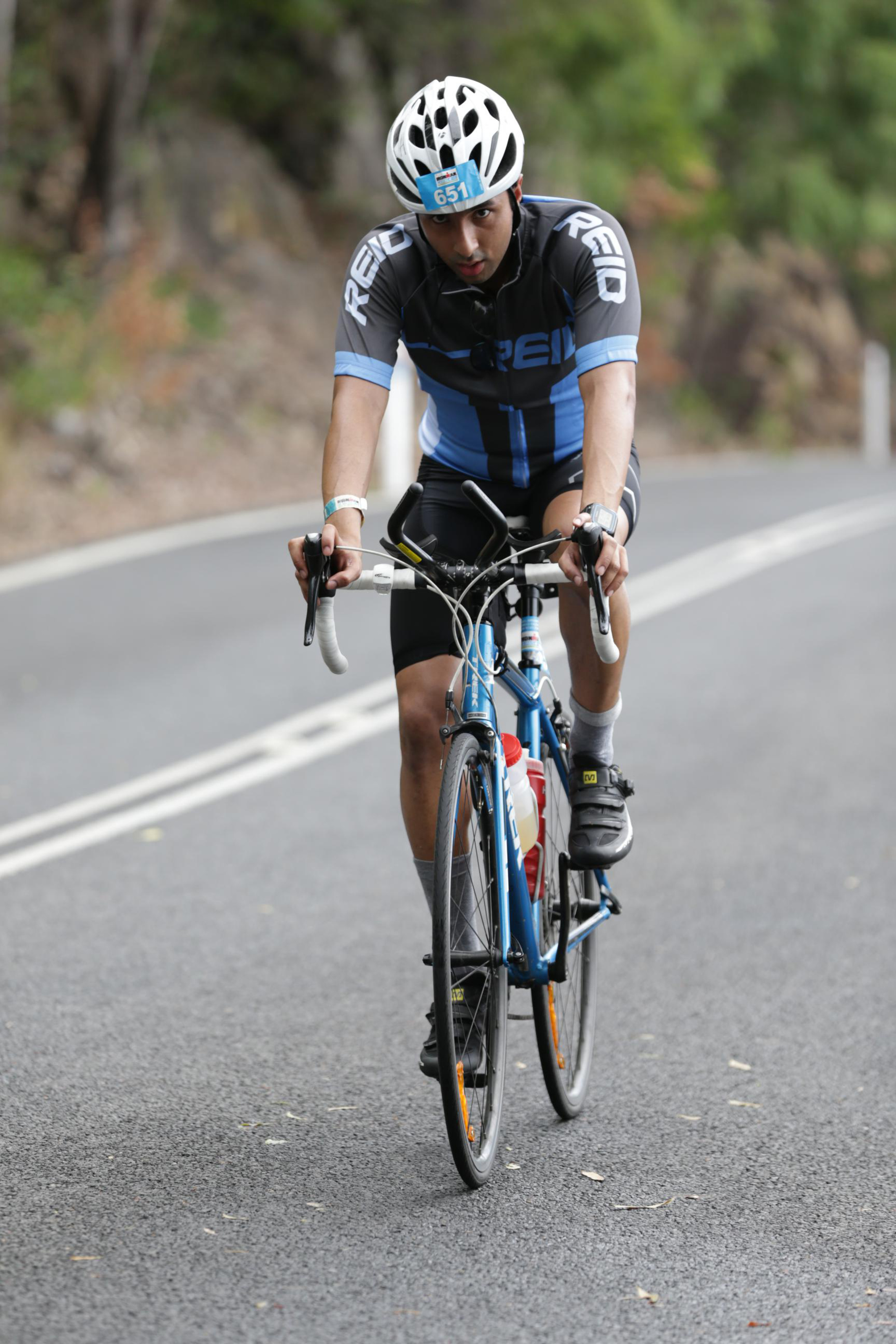
A Metaphor For Life
“I love running, because I use it as a metaphor for life,” Hassan tells us. “When I start a marathon, I am on a high, I am happy that I am doing something great, and there is this whole adrenaline rush which feels amazing. But then you will get to that point where you just feel like you can’t do this anymore. This is when you have to keep telling yourself to keep going. And this is what life is like too. Obviously it has its ups and downs…all this training helps me through these moments.” He believes that intense training such as the kind that goes into a marathon, teaches you skills that can never be taught in a classroom or university, like persistence, perseverance, determination and setting goals.
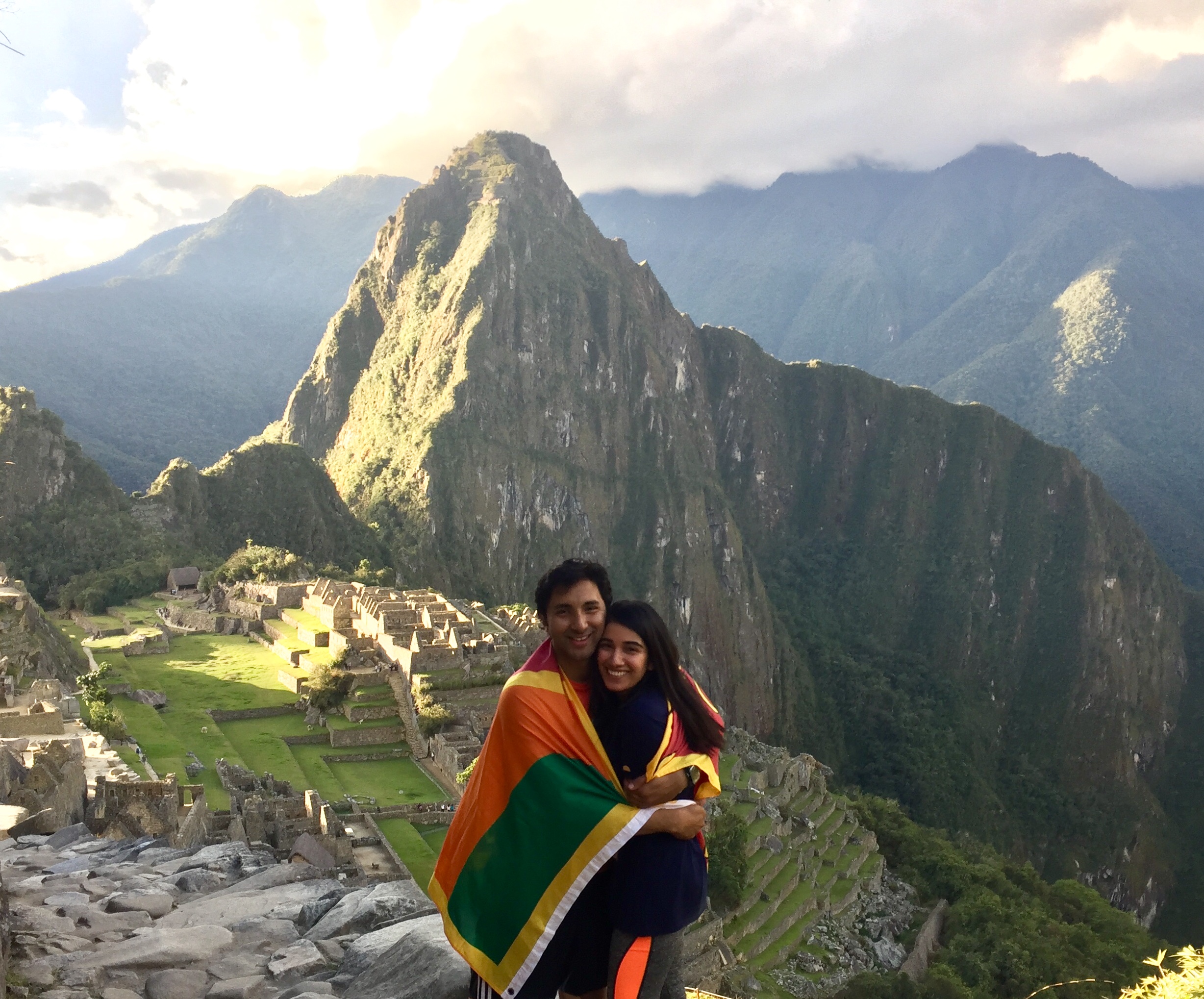
Juggling his running along with work and everything else has not been easy, but with an excellent support system—especially in his wife Rashida—and a lot of planning, Esufally has managed to stay afloat. “I even managed to fast during Ramadan while training for the Big Five Marathon,” he laughs. “I did 24 days out of the 30. Basically, I became nocturnal and slept during most of the day and trained and worked at night. Luckily for me, I work in my family business, so my schedule is flexible enough to make time for my training.”
He will be flying to the heart of Antarctica from Chile in December with 50 other competitors. If he completes the Antarctic Ice Marathon, Esufally will make an indelible place for himself, and for Sri Lanka, in the marathon world. “I will probably be nervous in the week before the marathon,” he says. “But right now, I am pretty confident I can do this.”
